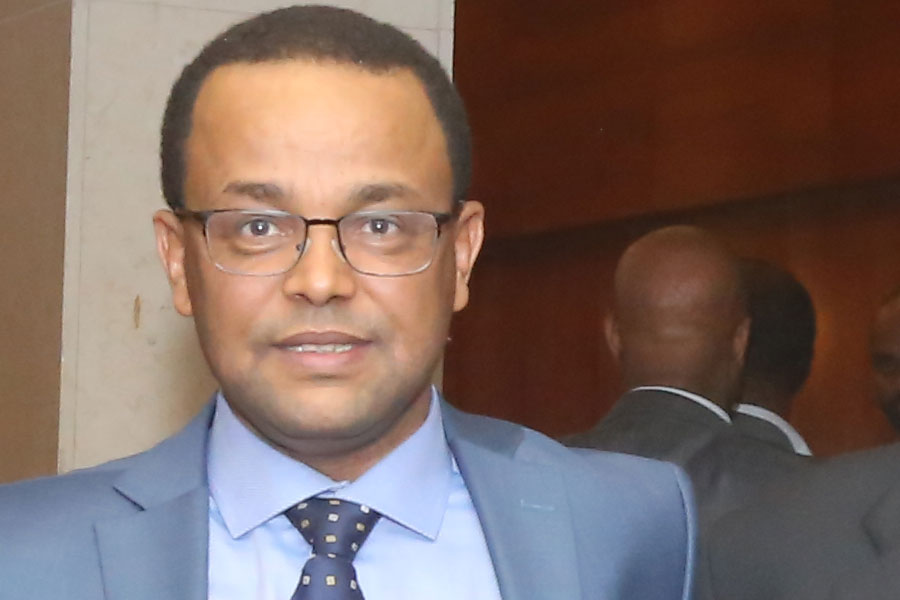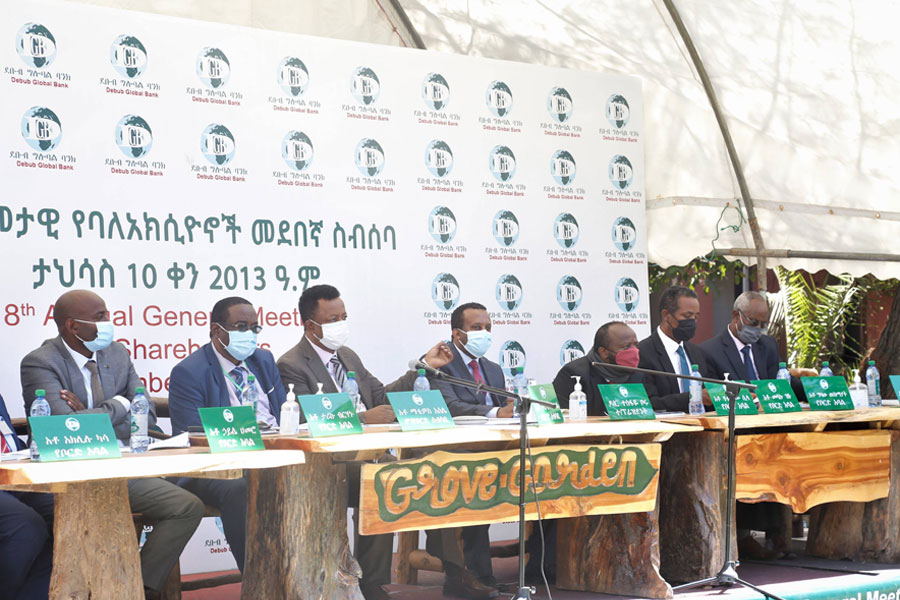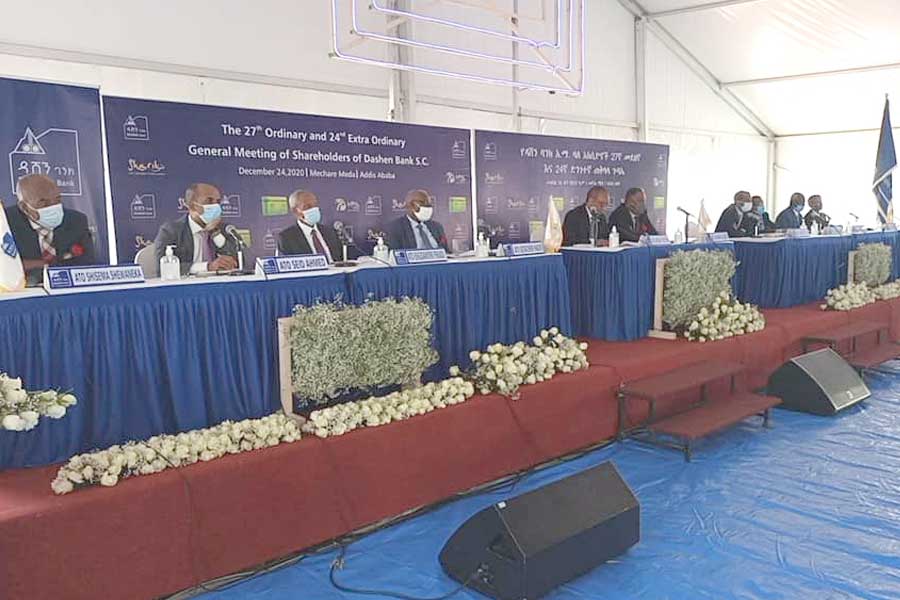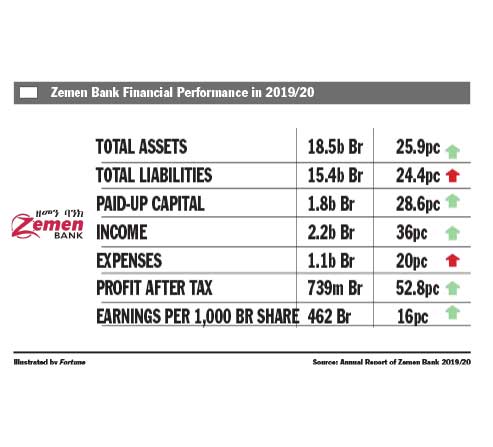
Oct 12 , 2024
By Hintsa Andebrhan
America's envoy to Ethiopia, Ervin Massinga, recently received attention on social media after misspeaking Ethiopia's current economic growth rate. His comments, shared on the official X platform of the Embassy in Addis Abeba, contradicted previous years' economic data, sparking criticism and praise.
The Ambassador acknowledged his mistake, took responsibility, and clarified that the Biden Administration had no involvement in his error. In his revised statement, Massinga stated that ongoing conflicts across Ethiopia severely undermine the country's potential for economic growth. He focused on how these conflicts prevent children from attending school, restrict access to medical care and humanitarian aid, and enable criminals to damage the social fabric further.
Despite the correction, he insisted that his primary point remains valid. The conflicts are a barrier to Ethiopia's economic prosperity. While many lauded his openness in correcting the misconception, others noted that his apology was carefully worded in diplomatic language, perhaps retracting more than it initially appeared. A selfie he posted under the overcast skies of Addis Abeba circulated widely on social media, interpreted as a subtle diplomatic gesture reinforcing his concerns about the country's economic problems. The photograph served as a visual anecdote to his argument about the poor economic growth rate.
It is widely recognised, including by Massinga, that endless conflict undermines economic prospects rather than stimulating growth.
Ethiopians are wrestling with harsh realities. Daily life is increasingly becoming difficult, with agriculture, construction, manufacturing, and small businesses, sectors that once absorbed a large portion of the working class, slowing down. Continuous displacement due to conflicts and ambitious development projects exacerbates the situation. A few years ago, the concern was securing three meals a day; today, many struggle to afford even one, questioning the federal government’s claim that agricultural, the backbone of the economy, grew by 6.9pc to reach 700 million quintals.
Indeed, policymakers celebrated the economy's expansion by 8.1pc last year and projected the GDP to grow further by 8.3pc next year. However, "nobody eats GDP," as Akinwumi Adesina (PhD), president of the African Development Bank (AfDB), stated while unveiling the Bank's flagship economic report at last year's Africa Economic Outlook summit. His words resonate here, where food security remains a pressing concern despite years of reported double-digit GDP growth under the administrations of the late Meles Zenawi and Hailemariam Desalegn.
The need for committed political leadership and robust economic policies prioritising national interests over adherence to external pressure remains daunting. Working with Western countries should not be taboo; however, Ethiopia should develop solid policies that protect its political and economic sovereignty, moving beyond the influence of external powers.
Crafting an autonomous policy playbook and maintaining a firm ground could advance Ethiopia's standing in diplomatic circles. Being sincere and trustworthy in foreign policies is crucial. As former President Donald Trump said in his inaugural speech to the United Nations General Assembly seven years ago, every country should prioritise its interests. Ethiopia's leaders should remember that territorial integrity and policy sovereignty precede international cooperation.
Ethiopia should approach international relations cautiously, including dealings with institutions like the IMF and World Bank. Playing politics requires diplomatic savviness, ensuring that national interests are not compromised. The current economic and political challenges call for decisive action to restore stability and promote real growth that benefits the populace.
Ambassador Massinga's remarks and his subsequent discourse should serve as a critical juncture for Ethiopia. It should confront the detrimental impact of internal conflicts on its economy and social fabric. By prioritising strong leadership and policies that serve its citizens, Ethiopia can work towards overcoming the obstacles impeding its full economic growth potential.
PUBLISHED ON
Oct 12,2024 [ VOL
25 , NO
1276]


Commentaries | Jan 07,2024

Fortune News | Dec 27,2018

Fortune News | Jan 09,2021

Radar | Oct 07,2023

My Opinion | Nov 11,2023

Radar | Apr 13,2019

Fortune News | Feb 13,2021

Advertorials | Feb 12,2024

Fortune News | Feb 20,2021

My Opinion | Sep 14,2024

Photo Gallery | 178983 Views | May 06,2019

Photo Gallery | 169179 Views | Apr 26,2019

Photo Gallery | 160053 Views | Oct 06,2021

My Opinion | 137132 Views | Aug 14,2021
Commentaries | Oct 25,2025

Dec 22 , 2024 . By TIZITA SHEWAFERAW
Charged with transforming colossal state-owned enterprises into modern and competitiv...

Aug 18 , 2024 . By AKSAH ITALO
Although predictable Yonas Zerihun's job in the ride-hailing service is not immune to...

Jul 28 , 2024 . By TIZITA SHEWAFERAW
Unhabitual, perhaps too many, Samuel Gebreyohannes, 38, used to occasionally enjoy a couple of beers at breakfast. However, he recently swit...

Jul 13 , 2024 . By AKSAH ITALO
Investors who rely on tractors, trucks, and field vehicles for commuting, transporting commodities, and f...

Oct 25 , 2025
The regulatory machinery is on overdrive. In only two years, no fewer than 35 new pro...

Oct 18 , 2025
The political establishment, notably the ruling party and its top brass, has become p...

Oct 11 , 2025
Ladislas Farago, a roving Associated Press (AP) correspondent, arrived in Ethiopia in...

Oct 4 , 2025
Eyob Tekalegn (PhD) had been in the Governor's chair for only weeks when, on Septembe...

Oct 25 , 2025 . By YITBAREK GETACHEW
Officials of the Addis Abeba's Education Bureau have embarked on an ambitious experim...

Oct 26 , 2025 . By YITBAREK GETACHEW
The federal government is making a landmark shift in its investment incentive regime...

Oct 29 , 2025 . By NAHOM AYELE
The National Bank of Ethiopia (NBE) is preparing to issue a directive that will funda...

Oct 26 , 2025 . By SURAFEL MULUGETA
A community of booksellers shadowing the Ethiopian National Theatre has been jolted b...